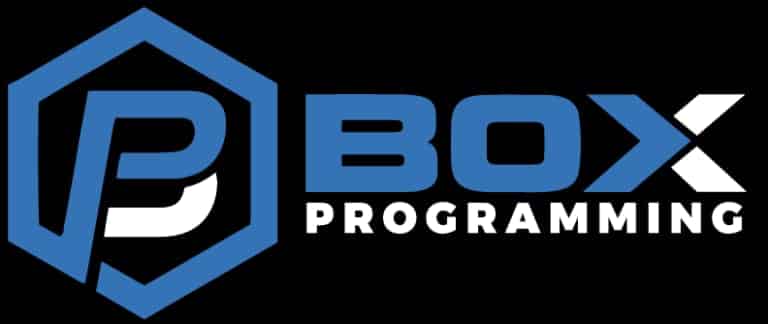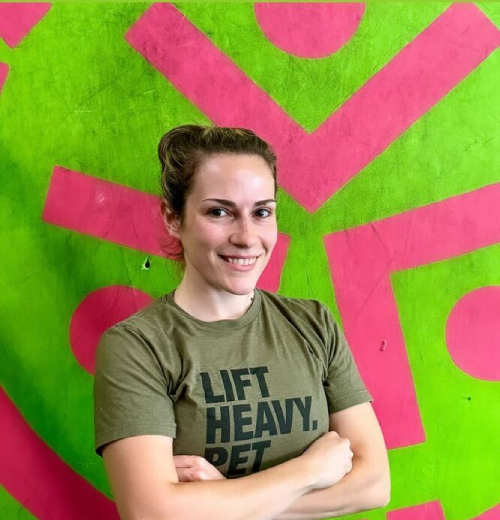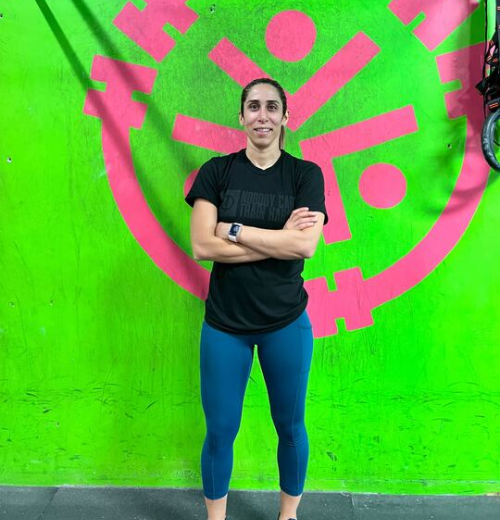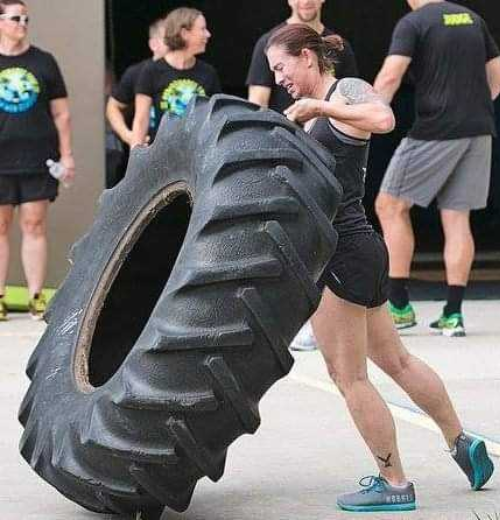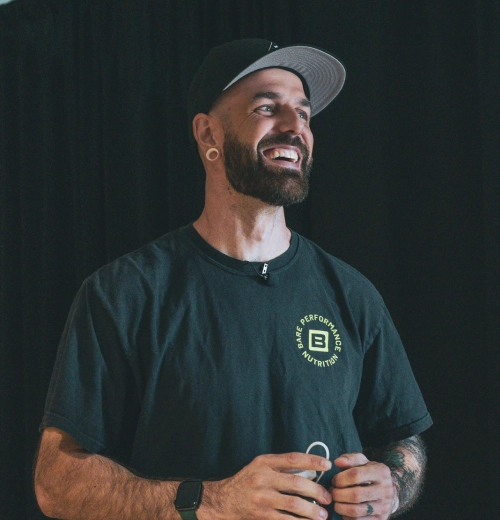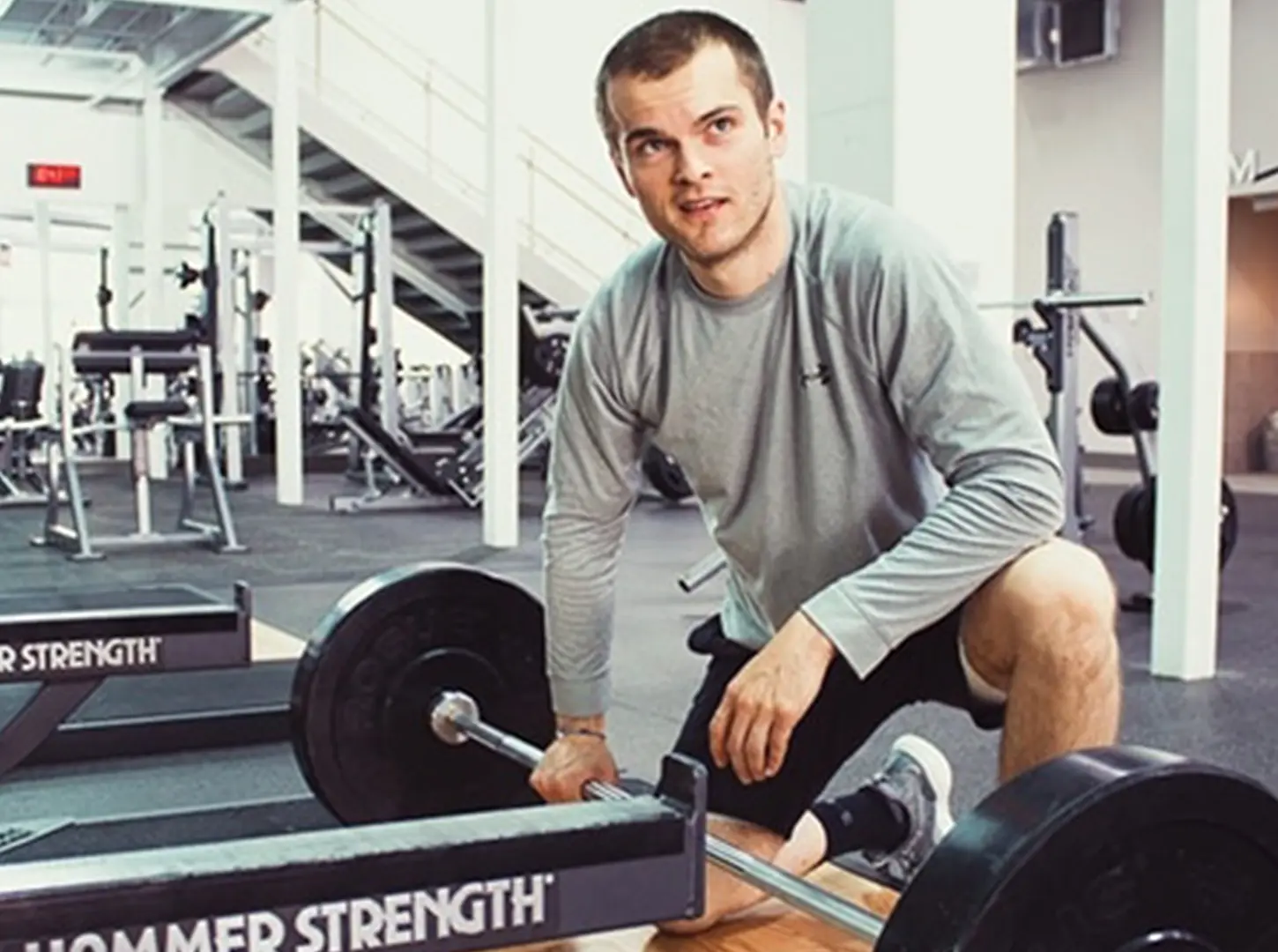Feeling a plateau? Maybe you need some personalized direction in your training
Client A: Who has been here for three months on a 1RM deadlift day: she steps up to the bar, looks a bit perturbed by the ‘heavy’ weight, shrugs and then proceeds to bend down and pick the bar up with easy-to-see speed and ease. Her reaction: “Holy shit, that was heavy!” Then she casually trots off and prepares for the conditioning, fully recovered within a matter of seconds.
Client B: A client who has been here for 5 years on a 1 RM deadlift day: After pacing for 30 seconds as he mentally prepares, he steps up to the bar, takes a few deep breaths, tightens his belt, lets out a grunt or two, braces hard, speaks a few motivational words to himself, and then pries the bar off the ground taking no less than 8 gruelling seconds to stand up with it and lock out the rep. Hamstrings quivering, lightheadedness overtakes his body. His reaction: “Holy shit, I wasn’t sure I had that.” Then he sits down and tries to recover in time for the conditioning.
The thing is, when you first start training, like Athlete A, you can pretty much show up every day and get a PR. Easily. Generally, this is because you’re working well below your true strength capacity, which is what we want in order to keep you technically
sound and injury-free. The reason your body doesn’t want to lift more is because your nervous system isn’t ready for more weight or intensity (nor is your mind). In other words, when you put what feels like a lot of weight on the bar, you might think it’s too
heavy for your muscles to handle, but it’s really just your nervous system (and your mind) freaking out because you have never felt that much weight before. Five years later, PRs are had to come by. Your nervous system and mind have adapted to intensity, load and volume, and you’re generally working much closer to your current strength capacity. As a result, if your technique is slightly off, if you didn’t sleep well, if you’re hungover etc, you likely aren’t going to hit your 1RM deadlift.
If you’re in your training infancy, enjoy it! And if you’re at a place where performance gains are fewer and further between, or if you have been on a legitimate plateau for a few months now, here’s some food for thought brought to you by world-renowned
strength coach Charles Poliquin’s blog (although the article in Poliquin’s blog was written by Benjamin Hardy, the author of Willpower Doesn’t Work)
In this article, Hardy talks about how, similar to diet, people with different genetics and body types need different things. Again, in your first three years of training, if you’re squatting, pressing, deadlifting, pushing and pulling on a regular basis you’re going to improve. You likely don’t need a personalized program, nor do you need to consider training for your genetic makeup. However, if you’re an experienced client here and feel you might be needing something different or more, this food for thought is for you: In the Poliquin blog, Hardy references a theory put forth by Anatoly Bondarchuk, a former hammer thrower from the Soviet Union. Bondarchuk believed different people respond differently to different training programs. In short, there are three kind of responders: Intensity responders, variety responders and volume responders. Pretty easy to understand: Intensity responders adapt well to more intensity in their training program, variety responders’ bodies do well when there’s tons of variety, and volume responders need lots of volume to see results. Although just a theory, it’s something to consider if nothing else.
Another theory Hardy put out is that everyone has a dominant neurotransmitter: We’re either dopamine dominant, acetylcholine dominant, GABA dominant or Seratonin dominant.
A bit about each neurotransmitter:
Dopamine: A neurotransmitter responsible for transmitting signals in between the nerve cells of the brain.
Acetylcholine: It carries signals from motor neurons to the body’s skeletal muscles.
GABA: It sends chemical messages through the brain and the nervous system, and is involved in regulating communication between brain cells.
Seratonin: It helps regulate mood, appetite, digestion, sleep, memory and sexual drive and function. Low levels have been associated with depression.
There’s a theory put out by Dr. Eric Braverman that our personalities are based on your dominant neurotransmitter.. It’s called the Braverman personality test and you can take it HERE:
Going a step further, in Hardy’s article, he combines Bonarchuk’s theory about there being three different kind of responders with the Braverman personality test. Together, they can tell you what kind of athlete you are, and what type of training you’ll likely be
most responsive to. Mind blown yet? You can read a more detailed explanation in that article, but here’s the Cliff Notes if you’re in a rush:
• Dopamine dominant people tend to do well at explosive and power-based sports. They do well with lots of intensity: Low reps, lots of sets! (i.e. intensity responders).
• Acetylcholine people have great attention spans and focus and excel in team sports. They also require lots of variation in volume, according to Hardy. (i.e. variety responders).
• Meanwhile, GABA dominant folks have tons of patience and do well at physical activities that require calmness and patience. No surprise, these are the volume whores. A workout with 40 rounds? These guys love them! (i.e. volume responders).
• And Seratonin dominant people make great monks: They’re content and happy in most situations.
Of course, figuring this all out is more of an art than a science, but it’s certainly insightful and can help point you in the right direction in terms of what might be missing from your training right now. With all this in mind, here’s the thing: If you have been here for five years, have been coming regularly to group classes and are now plateau-ing, it could be that you just need a little extra work (we call it “Street Cred”)”, a little more personalized attention or training direction to get you to reach your next performance goal (It could also just be you need your technique cleaned up on various lifts and gymnastics movements, of course, or that you need to clean up your diet).
But if you think this is you, talk to your coach. From personal training to an individual program, or just 20 minutes of “Street Cred” to do after class: We can help point you in the right direction on your fitness journey.




